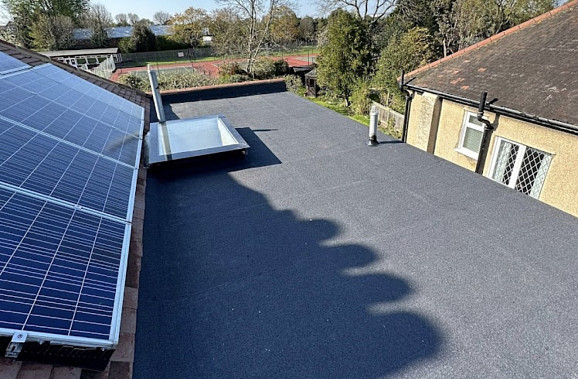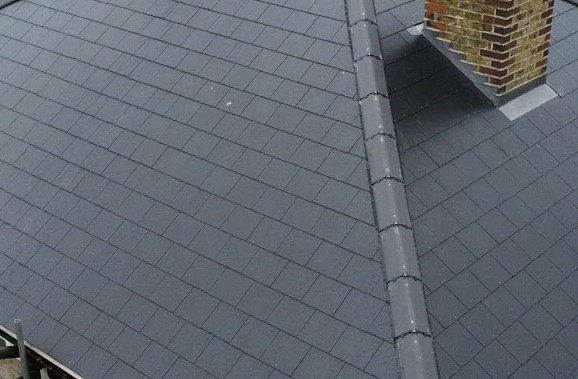Your roof is a crucial part of your home or business, providing shelter and protection from the unpredictable and changeable London weather. As time passes, it is prone to deterioration caused by elements such as weather conditions, aging, unintentional harm, or neglect. The question then arises - should you repair, patch, or replace your roof? Making this decision can be difficult, especially when adding in factors such as cost, disruption, potential loss of business production etc. This article aims to guide you through the process, offering first-hand insights on when it's suitable to repair or patch areas of damage, or when it might be a better option to consider a total roof replacement.
Factors To Take Into Consideration
There are many factors that should be taken into consideration, not all will be relevant, depending upon the type of property and roof materials being used. One of the great features of roofing in London, is the diverse range of roof types it has.
How Old Is The Roof?
The age of the roof is a significant factor to take into account when contemplating repair or replacement. Different roofing materials have varied lifespans, for instance, slate can last well over 100 years. If the roof is relatively new, then often simple maintenance and repairs should be all that is required. However, with an old roof nearing the end of its expected lifespan, it might be more financially viable to replace it due to failing and worn-out materials.
Is There A Roof Warranty?
Another factor to consider when deciding whether to patch, repair, or replace your roof is its warranty status. Roofs often come with warranties that can range from 10 to 50 years, sometimes even longer. If your roof is still under warranty, it may cover the cost of repairs or even entire replacement depending upon the terms specified in the agreement. At Knights Roofing based in West London, all our work is guaranteed.
Examine The Roofing
By physically examining the roof, you can often gain a better understanding of what is required. Flat roofs are usually a lot easier and safer to inspect compared to pitched roofs, it is extremely important to make sure the roof is safe to inspect and that all safety precautions are adhered to. Some of the key areas you should inspect on the roof include:
- Look for signs of leaks (such as stains or mould) as well as water collection.
- Inspect the flashing, especially around the chimneys and vents
- Due to the amount of rain and property proximity to trees in London, it is important to check gutters and downpipes
- Inspect the materials, looking for signs of wear, aging, damage and loose items
- Look over the Soffits and Fascia on the roof
Look At The Structural Integrity
By inspecting the structural integrity of your roof, it will help you better understand the severity of the roofing issue. Some of the key structural areas you should look at might include the framing, support beams, the attic, trusses, connection points, any load-bearing walls and any rot or decay.
Look For Signs Of Sagging
A sagging roof is a serious issue that signals potential structural problems. It can be caused by a variety of factors such as poor support, overload, water damage, material issues, and poor ventilation. Poor support or overloading can happen if the roof was not adequately designed to support the weight of the materials used. Water damage can cause the roof structure to weaken over time, contributing to sagging. Material issues could include the use of subpar materials or incorrect installation, both of which can result in a roof sagging prematurely. Lastly, poor ventilation can lead to increased moisture and heat in the attic, causing the roof to deteriorate and sag over time.
Consider the Roof's Energy Efficiency
Considering the roof's energy efficiency is becoming more important due to environmental issues and also the increased cost of utilities. A roof's energy efficiency directly relates to its ability to reflect or absorb heat, impacting the overall temperature regulation within your property. An energy-efficient roof can significantly reduce your heating and cooling expenses, contributing to substantial savings in the long run. If your current roof is inefficient, it might be more beneficial to consider a full replacement with a more energy-efficient material, rather than patching or repairing. On the other hand, if your roof is already efficient but has minor damages, repairs might be the more cost-effective option.
Future Plans For The Property
Your plans for the property, whether you intend to stay long-term or move shortly, can heavily influence your decision about roof repairs or replacement. If you're planning to sell the property shortly, a newly replaced roof could increase the property's value and improve the chance of selling. However, if you are planning to stay in the property, investing in a new roof could provide long-term peace of mind, reduce ongoing maintenance costs, and improve the home's energy efficiency. On the other hand, if you are planning to move, you might feel there is little point in spending money on a new roof if you are not going to be there to enjoy the benefits.
How Often Are Repairs Being Carried Out?
The frequency of roof repairs can be an important indicator in the decision-making process. If you find yourself constantly having to repair your roof, it might be time to consider a complete replacement. Constant piecemeal repairs can not only be disruptive but can also add up financially over time.
Conclusion
In conclusion, the decision to repair, patch, or replace your roof hinges on a multitude of factors. The age of your roof, its warranty status, physical condition, structural integrity, energy efficiency, your future plans for the property, and the frequency of repairs all play a crucial role in determining the most cost-effective and sensible route. Remember, frequent, minor repairs might seem like a less costly option in the short term, but they could accumulate into a significant expense over time. Conversely, a total roof replacement might seem expensive initially, but it could prove to be a wise investment, particularly if you plan to stay in the property long-term. Additionally, a well-maintained, efficient roof can significantly boost your property's value. Therefore, it's essential to consider all these factors carefully and seek professional advice to make an informed decision. Check out our Flat Roof repair in West London page.




